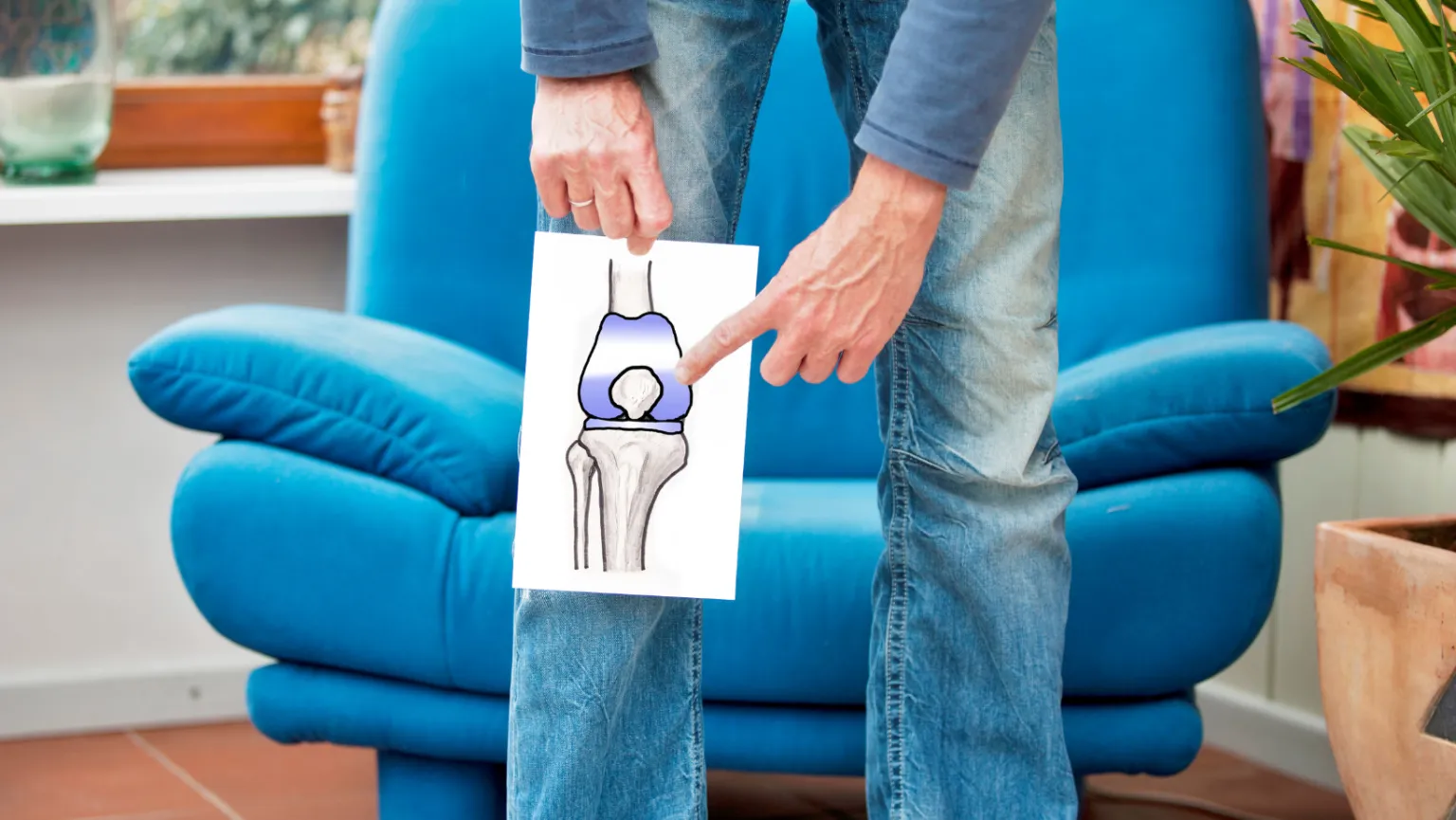Introduction
When you’re facing a total knee replacement surgery, there are things you can do to make the process easier. The more prepared you are for your surgery and recovery, the better off you’ll feel during this challenging time. In this guide, we’ll show you our best tips for preparing for total knee replacement surgery and help get your body ready for this big step.
Start working with your doctor.
You should start working with your doctor as soon as possible. A good relationship with your doctor is essential so that you will be able to understand the procedure, know how to prepare for surgery and recovery, understand the risks and benefits of surgery and be prepared for post operative recovery.
Get your home ready.
- Get a place to stay. You may need to stay in the hospital for one night, so make sure you have somewhere to sleep and someone who can help you move around.
- Have a place to store your things while you’re recovering. If possible, choose a room where there is space for everything that will be needed during recovery—including medicines, oxygen tanks (if applicable), toiletries and more—and keep it organized so it’s easy to find what’s needed when needed.
- Check with the hospital about its policy for bringing food into the room after surgery; some hospitals don’t allow this because of potential contamination risks from other patients’ germs or bacteria from kitchen staff touching cut fruit or vegetables before serving them in patients’ rooms.
Sign up for Pre-op PT/Attend a total knee replacement class.
Before surgery, it’s important to spend time with your physical therapist (PT) and learn about the procedure. A PT can help you fully understand what to expect during recovery and how best to prepare for it.
In addition, a total knee replacement class will help you understand what’s involved in undergoing this type of surgery. The class will also teach you how to set up your home so that it meets your needs as a recovering patient.
Take a tour of the hospital and rehab unit.
It’s important to ask questions about the process and get familiar with the hospital and rehab unit. You should also take a tour of the hospital, ask for a map of your floor, and find out where things are located. This will help you feel at ease when it comes time to leave for surgery.
When visiting a facility that’ll be handling your care from start to finish—from admission through discharge—it’s essential that all parties involved in your recovery feel comfortable with their surroundings.
Find an outpatient physical therapy clinic to go to
You will need to go to physical therapy after your surgery. A good outpatient physical therapist can help you recover faster and more fully than someone who is doing it on their own.
It’s important to find a clinic that’s close to home and work so you don’t have trouble getting there, as well as one with flexible hours so you can fit sessions into your busy schedule. You’ll also want to look for a clinic with an excellent reputation—this will help ensure that you get the best care possible from their expert physical therapists!
Learn and practice your rehab exercises
You want to learn your post-op exercises before your surgery for a few reasons– It will improve your muscle memory and strength, improve your learning curve, and improve a fancy word called proprioception. Proprioception is being adequately aware of your knee and being able to feel your knee position and movements without looking at them. The swelling that builds up in your knee after surgery will interfere with your proprioception. Learning your exercises will give you an upper hand in your recovery. It’s like studying for a final exam.
Your physical therapist will recommend a home exercise program using minimal equipment during your initial recovery period. You can also try simple exercises such as walking around the house several times during the day to maintain your endurance and strength.
Do some prep work at home.
Most people don’t realize it, but surgery can be a very stressful and emotional time. You’ll want to make sure that you’re as prepared for the surgery as possible before you leave for the hospital.
Make sure you have someone in your home who can watch over everything for you while you’re gone. Consider hiring a housekeeper, having family or friends stop by, or contacting an elder care company like Home Instead Senior Care® that can provide companionship and assistance with daily living needs—all while ensuring peace of mind at home while undergoing total knee replacement surgery.
Before going into surgery, it’s also important to pack all of your belongings in advance so there aren’t any last minute distractions when trying to get ready for a procedure like this one (which takes place under general anesthesia). Make sure everything is packed up securely so nothing gets lost or damaged during transportation.*
Also, plan for where you will sleep at night. If your bedroom is on the second floor of your home, consider a temporary sleep location on the main floor until you can successfully and safely climb a full flight of stairs.
Take care of financials and insurance paperwork.
- Make sure you have insurance coverage and check your coverage with your insurance company.
- Ask your insurance company if they will pay for a home health aide. This can be a helpful addition to your recovery process, as it means you won’t have to worry about driving or getting around while recovering from surgery, which can be strenuous on the body even when just getting up and walking around.
- Understand how much of the total cost of surgery is covered by your insurance and what is not covered by them at all (e.g., co-pays). Your deductible is likely higher than you think; you may have incurred costs already because of this procedure before even knowing about it! It’s important that patients understand these things before going into their procedures so they do not feel blindsided by unexpected costs after the fact.
Make sure you have transportation.
This is a big surgery, and you’re going to be feeling pretty wiped out when it’s all done. Make sure that someone can drive you home from the hospital, or hire a driver if necessary. You don’t want to risk driving yourself in such an incapacitated state.
Also make sure that whoever drives is aware of what they’re getting into: If they need to pick up prescription pain pills on their way over, make sure they know where they can get those as well.
Help is available for a little while after surgery.
If you’re worried about how you’ll be able to take care of yourself after surgery, don’t fret. Help is available for a little while after surgery. Here’s what you can expect:
- Home health aides: These workers will come to your home and help you with things like cleaning, shopping, cooking and laundry until they are no longer needed.
- Rehabilitation facilities: You may be sent here immediately post-surgery if your surgeon recommends it. The facility offers therapy that includes physical therapy sessions; occupational therapy sessions; speech therapy sessions; treatment by psychologists and psychiatrists; nutrition education classes; support groups for others who have undergone knee replacement surgery; and assistance accessing transportation services (such as van service or taxi) in order to get back home safely after leaving the facility each day without having someone else with them at all times during their recovery process.”
Preparing for this big step can help you feel confident about your surgery, recovery and life afterward.
Preparing for your surgery can help you feel confident about your recovery and life afterward. Here are some things to do:
- Figure out what to take with you to the hospital. Bring a copy of your medical records, insurance cards, phone charger, and any other items or clothes that will make you more comfortable during recovery.
- Start preparing meals ahead of time so they’re ready when you get home from the hospital. Talk with caregivers or family members about how they can help out while you recover at home (for example: bringing food or offering rides).
- If there are activities that are important to you (like walking outside), consider limiting them until after surgery so they don’t cause pain in your knee joint after surgery.
Do Meal Prep for the 1-2 weeks after your surgery
In the days leading up to your surgery, it’s a good idea to prepare meals that can be stored in the fridge or freezer and easily heated up. This way, you won’t have to worry about figuring out what you’re going to eat when you’re recovering from surgery—all of your meals will already be ready.
If possible, try making enough food for two weeks post-surgery because it takes time for patients’ appetites and energy levels (and mobility) to return after this type of procedure. It also helps if the food can be eaten cold or at room Great Neckrature without being cooked because there may not always be enough energy available for cooking after surgery has taken place. If possible, make sure all meals are easy on digestion so that they don’t cause gas pains or bloating in the abdomen area (which could cause discomfort during recovery). It might also help if these meals are soft enough that they won’t hurt any stitches made internally during surgery—so no hard foods like chicken bones!
Get your body ready for surgery
Before your surgery, you can take a few steps to prepare your body.
- Exercise regularly. A strong core and lower extremities are important for the recovery process after total knee replacement surgery. Exercise increases circulation in the affected limb, which improves healing and reduces swelling at the incision site. Begin with low-impact exercises that do not put stress on your knees or cause pain. Your doctor may recommend exercises like swimming and yoga, which can help strengthen muscles around the joint as well as target other areas of weakness like upper body strength for reaching objects above eye level.[4] Be sure to talk with your doctor first about what kinds of exercises would be appropriate for you based on his or her recommendations—you may need an exercise prescription before starting a regular regimen!
- Eat a well balanced diet that includes protein, minerals such as iron, zinc, and copper, and stay well hydrated. Other essential vitamins for wound and tissue healing include magnesium, calcium, Vitamin A, and Vitamin C. Speak to your physician about taking bromelain and arnica montana to prophylactically combat swelling, bruising, and muscle aches.
Conclusion
We hope that this article has helped you prepare for surgery and to get your body ready. It’s important to be organized and have a plan so that you can focus on recovery when it’s time. The more prepared you are, the easier things will go—and we want everything about your surgery and recovery to be as easy as possible!
Call us at (516) 487-9810 for a free 20 minute phone consultation with one of our expert physical therapists. We’d love to answer any questions that you may have!


